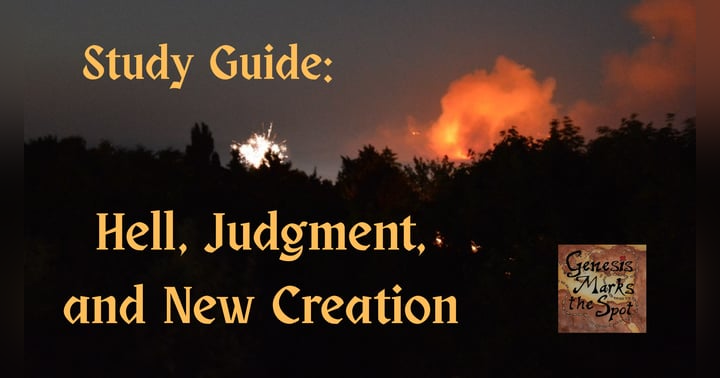Aliens, Atonement, and Sacrifice

Does Jesus' Mission Extend Beyond Earth?
I was recently watching Dr. Michael Heiser’s 2003 lecture at God, Man and ET: The Questions of Other Worlds in Science, Mythology and Religion. (The only version I know of, you have to purchase on Amazon, sorry...but the lecture is only $2.99 ---unless you're in Australia, in which case it's probably like $3000 or something. That's what you get for being a paid actor on the other side of the disc, I guess.)
Dr. Heiser’s lecture was about whether or not Judeo-Christian theology can stand a revelation of the existence of extraterrestrial life. (Surprise, yes it can.)
As I listened to Dr. Michael Heiser share his reflections on the intersection of extraterrestrial life and Christian doctrine, unsurprisingly, some very strong Protestant theology popped up in the discussion. Specifically, referencing the atonement as being about a sacrificial death of Christ and mitigation of guilt from sin. And I couldn’t help wondering how my own understanding of the atonement, incarnation, and the scope of Christ's work would impact the question that Dr. Heiser was tackling about extraterrestrial life.
Dr. Heiser largely approached the atonement from a traditional Protestant framework: Jesus' death deals with moral guilt, removing sin through substitutionary sacrifice. (The inclusion, or not, of a “penal” aspect to the atonement is a specific question that may or may not be applicable, but is not necessary to the question as the point of is primarily guilt mitigation and substitution-as-replacement, both things that I reject as "needed" when God can freely forgive and does not need a replacement. ...And frankly, Dr. Heiser saw that, too; see the comments on this post where he says, "[God] provides means for that other than penal substitution in the OT.") Substitution is, of course, a familiar model, and one that’s deeply rooted in most evangelical theology. And I'm not saying I toss it out wholesale, entirely...though definitions are certainly in order and I don't expect the way that I'm thinking of it is precisely the same as Dr. Heiser was thinking.
So then, I couldn’t help wondering—what happens to the question of ET when you start talking about atonement as not being about guilt-mitigation?
The Atonement: More Than a Legal Transaction?
Okay, I know I have to lay out some things here for you, because some of you are thinking right now, wait, she doesn’t believe in the atonement??
Well, first of all, as I said, definitions matter. It depends on what “the atonement” is. You realize that “atonement” is an English word, right? It literally means at-one-ment. (No, I'm not kidding. That's what it means. This time, that's not just a flowery pastoral thought.)
And sure, that word–that was made up specifically for translating the Bible–has some associated original-language words.
“Okay, fine, say propitiation, then.” Right??
Except I don’t want to say propitiation, because that’s not a good word to use, either. (“Propitiation” in the NT is referring back to the mercy seat in the holy of holies; the mercy seat wasn't about wrath appeasement.) I actually would prefer the term atonement, because I do think that what Jesus does is a reconciliation. And I do think sacrificial imagery applies. It’s just not only sacrificial. And I question the idea that sacrifice is about death. If it were “about death,” then death would be the focus…when it seems pretty clear that something else is going on with the idea of sacrifice and offerings. (Namely, sacred fellowship meals.)
You keep using that word "atonement"—I do not think it means what you think it means. Maybe it's time we widen our theological lens.
Yes, I believe in the atonement, and I believe in sacrifice, and I believe in the work of Christ, and I believe that it’s very, very wide-ranging and reconciliatory. All that seems quite clear from Scripture. What isn’t so clear from Scripture, in my opinion, is the formulation of that work within Reformation-era frameworks.
Anyway….back to the topic at hand:
It strikes me that the question about Christian theology and ET life becomes clearer—and perhaps easier to explore—when we have done that work of refining our understanding of sacrifice and atonement itself. What if we’ve limited our vision by focusing narrowly on guilt and its removal?
Scripture presents atonement (in its broader framework) not just as a legal remedy (one which is attached to the concept of sin, certainly, as we read in Romans 5-6), but as a relational one. If we view the atonement primarily as reconciliation—restoring broken relationship between God and creation—then suddenly the picture expands. It’s no longer just about human sin and guilt. It’s about healing the cosmos. It’s about communion.
God doesn’t need a transaction to forgive. He’s not constrained by some cosmic legalism. If forgiveness is relational, then the atonement is more about restoration than retribution.
Incarnation: Genesis 1 Before Genesis 3
And this leads to another key theological question: Why did Jesus become human in the first place?
If the incarnation is only a response to human sin (Genesis 3), then the mission of Christ is a kind of divine damage control. But what if the incarnation was always the plan—growing from the love and creative intention of Genesis 1?
This reframing opens the possibility that Jesus came not merely to fix a problem, but to fulfill a purpose. He came to unite creation to God in himself. That purpose isn’t limited to one chapter or to one planet.
ET and the Image of God
So, what about intelligent life elsewhere in the universe in regard to the image of God? (Because you know I have got to touch on this point.)
According to Dr. Heiser’s broader view of the imago Dei—one not restricted to biology, intelligence level, or carbon-based life—it’s entirely plausible that extraterrestrial beings could also bear the image of God. In Heiser’s framework, image-bearing isn’t about physical makeup or cognitive ability. It’s about vocation. It’s about representation. To be made in God's image is to be appointed as His representative, His vice-regent, wherever one is placed in creation.
If that’s the case, then ETs—wherever and whatever they are—could very well share in this representative role. They're not excluded by default simply because they aren’t human. (By the way...this is also why angels can have been created as the image of God.) The criteria for image-bearing are functional and relational, not anatomical.
Dr. Heiser laid all that out in his lecture. But it strikes me that this opens up an even bigger idea: if Jesus' work is rooted in Genesis 1—the original divine purpose of creation—and not just Genesis 3, the fall of humanity, then the incarnation was never just about damage control. It was about divine union, participation, and presence. The scope of Christ's reconciling work might be not just global, but truly cosmic.
Theology With a Telescope
A guilt-centered atonement model doesn’t necessarily exclude the possibility of alien life—but it does make it harder to see how they “fit"...especially from the view of the image of God and representation/participation. I'm not suggesting a reconciliation-centered model of atonement to fit ET into theology, but I found it interesting to consider the implications.
Either way, it’s not that Scripture gives us a definitive answer about whether Jesus died for ETs. That’s a mystery still wrapped in the heavens. But I will say that the more I think about these things, the more I realize that there's so much to truly grasp the full glory of what Jesus came to do in the first place.








